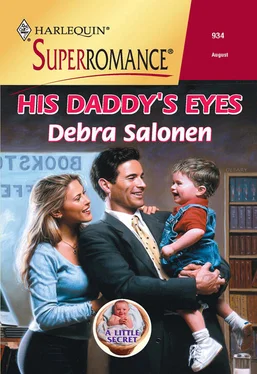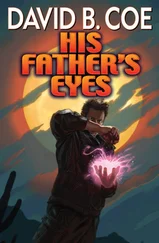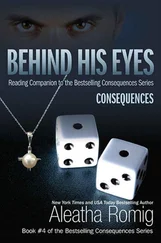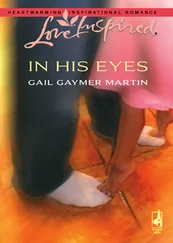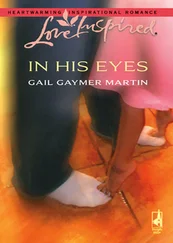“I knew your sister…in the biblical sense.”
A sudden piercing image of Julia and Lawrence together made Sara’s stomach heave. “I…don’t understand why you’re telling me this. You know she’s dead, right?”
He nodded. “I just learned of her accident. I’ve been looking for her for about two years.” At her questioning glance, he added, “I’m thinking of running for public office and I didn’t want any surprises. You know…blackmail.”
“That’s crazy. Julia would never do anything like that.”
“I didn’t know. We only spent one night together and…we didn’t talk much.”
“So why are you telling me this now? Why do I need to know that Julia had an affair? She wasn’t perfect but she was my sister, and I loved her.” Tears began to gather in her eyes. “She’s dead. Isn’t that punishment enough for her sins?”
He started to put out his hand to touch her, but let it drop to the bench.
“There’s a chance I might be Brady’s father,” he said softly.
Dear Reader,
People often ask me where I get my ideas for stories. I wish I knew for sure. This particular story has been in my head for years, but it never felt right to me until last summer when my son, Jon Paul, asked me what my next book was going to be about. We were strolling down a quiet street in La Grande, Oregon, and I started rattling off my idea about a judge, his private investigator buddy and a baby. The more I talked, the more real the characters became. When I asked Jon Paul what he thought of the premise, he told me, “Write it, Mom.” So I did.
As my heroine, Sara, came into focus, I realized she shared some of my daughter Kelly’s positive attributes. Both have a ready smile and nonjudgmental attitude that make them easy to love. And both learned at a tender age that the strong go on—chin up. Or, as Sara says, “You just do the best you can.”
The only problem I had in writing this book is that several of its secondary characters have very strong voices and personalities that can’t be overlooked. It became apparent early on that Bo, my hero’s best friend, was a hero in his own right. And to my surprise another character popped out of nowhere with a spunk and energy that seemed the mark of a heroine. You know what that means…a sequel.
I hope you enjoy reading this book and come to care about these characters as much as I do. The ending may surprise you—I know it did me.
Happy reading,
Debra
His Daddy’s Eyes
Debra Salonen
www.millsandboon.co.uk
For Kelly and Jon Paul, with a mother’s love
CHAPTER ONE
CHAPTER TWO
CHAPTER THREE
CHAPTER FOUR
CHAPTER FIVE
CHAPTER SIX
CHAPTER SEVEN
CHAPTER EIGHT
CHAPTER NINE
CHAPTER TEN
CHAPTER ELEVEN
CHAPTER TWELVE
CHAPTER THIRTEEN
CHAPTER FOURTEEN
CHAPTER FIFTEEN
SUPERIOR COURT JUDGE Lawrence Bishop III slammed his gavel. The three staccato repetitions dropped a curtain of silence over the proceedings. The opposing lawyers, who up to that moment had seemed poised for fisticuffs, turned to him with a combination of supplication and censure in their eyes.
As the third Bishop male to wear the black robes of a judge, Lawrence, who was “Ren” to everyone except his mother, had grown up hearing stories of courtroom theatrics. But in the two years since his father’s death and Ren’s subsequent appointment to the bench, he’d become weary of prima-donna headline hounds, such as defense attorney Steve Hamlin.
Hamlin, an up-and-coming name in Sacramento political circles, had a well-practiced smile that garnered female groupies. His defendant, a soon-to-be third-time offender, slumped in his chair like a lump of unformed clay.
Peter Swizenbrach represented the plaintiff—in this case, the State of California. If one believed the evidence—and Ren did—the lump was guilty of serial stupidity, which normally wouldn’t be punishable by life in prison unless it included using a gun, which this did.
“Gentlemen,” Ren said, his voice carrying as he meant it to, “do either of you see a jury in this room?”
The lawyers looked at each other as if suspecting a trick question. Tentatively, each shook his head.
“Then, who the hell are you playing to?” Ren barked, nodding toward the dozen spectators. “The audience?” Three young women—obviously Steve Hamlin groupies—in the front row squirmed as if he’d called on them to speak. “Because if you can’t control yourselves, then I will ask them to leave. I,” he stressed the word regally, for he was king of this particular corner of the world, “am not impressed.”
The two attorneys scurried to their respective tables to regroup.
Ren stifled a sigh. The bench was every lawyer’s dream job—and an important step in Babe Bishop’s not-so-secret political agenda for her son—but some days Ren would have traded it for a window job at the post office.
Before he could muster enough energy to begin round two, his clerk, Rafael Justis, a bright, young Hispanic who took no small amount of razzing about his name, handed Ren a folded piece of paper the size of a postcard.
Ren opened it. The familiar scrawl brought a peculiar quickening of his senses even before he read the cryptic: Gotta talk. Ren swore softly under his breath, then lifted his gavel a second time. “We’ll take a twenty-minute recess.”
REN TOSSED HIS ROBE on the brass-and-mahogany coat rack that had been his father’s, then paced to his office window. The view of downtown Sacramento from the third-story wasn’t impressive—no prestigious law firm’s corner office with a vista of the river. But it was an improvement over his previous digs: a tiny cubicle in the basement of a fifty-year-old federal building, where he’d researched environmental law.
Ren had chosen law school because it was expected of him, but he’d wound up falling in love with the law, not the circumspection of it. Although his favorite professor had urged Ren to take up teaching, Ren couldn’t bring himself to disappoint his parents, so he’d sought a compromise: environmental law. The pay sucked, but it gave him a chance to champion a cause he believed in.
For fifteen years, Ren quixotically tilted at bureaucratic windmills. Then, to his immense surprise, a small court battle over salmon spawning grounds two years ago stirred a media frenzy, and Ren became an overnight celebrity. Pretty heady stuff at age forty, but damn unnerving, too. Looking back now, Ren understood the impetus behind his crazy lapse in judgment, which no doubt was the subject of this upcoming meeting—a meeting Ren hoped would bring resolution to two years of haunting guilt.
A noise outside his chamber door made his stomach clench, and he ran a hand nervously through his hair, causing a wedge of ash-brown hair to fall across his view.
A soft knock preceded the opening of the door. Ren turned, motioning the visitor to a chair. At five foot ten, one hundred eighty pounds, with sandy brown hair and hazel eyes, Bo Lester epitomized the word nondescript, an invaluable trait in his line of work.
“Howyadoin’, Ren?” Bo called amiably before plopping like a sack of potatoes into the leather wingback chair opposite Ren’s desk.
No more grace than when we were students, Ren thought, smiling. He quickly sat down in his high-tech desk chair—a Christmas gift from Eve, his future bride, and leaned over to shake hands. “Long time no see,” Ren said.
“Did I pull you out of court? I told that Mexican kid I could wait. It’s your money, and you know I don’t mind wasting it.”
Ren grinned. Robert Bowen Lester Jr., or “Bo,” as he preferred, liked to come off as a redneck hillbilly. He was, in fact, the only son of one of the country’s top financial gurus, Robert B. Lester Sr. But Bo had broken with his family shortly after college when he’d chosen law enforcement over what he called “legalized money laundering.” Today, Bo was one of the top private investigators in northern California.
Читать дальше
